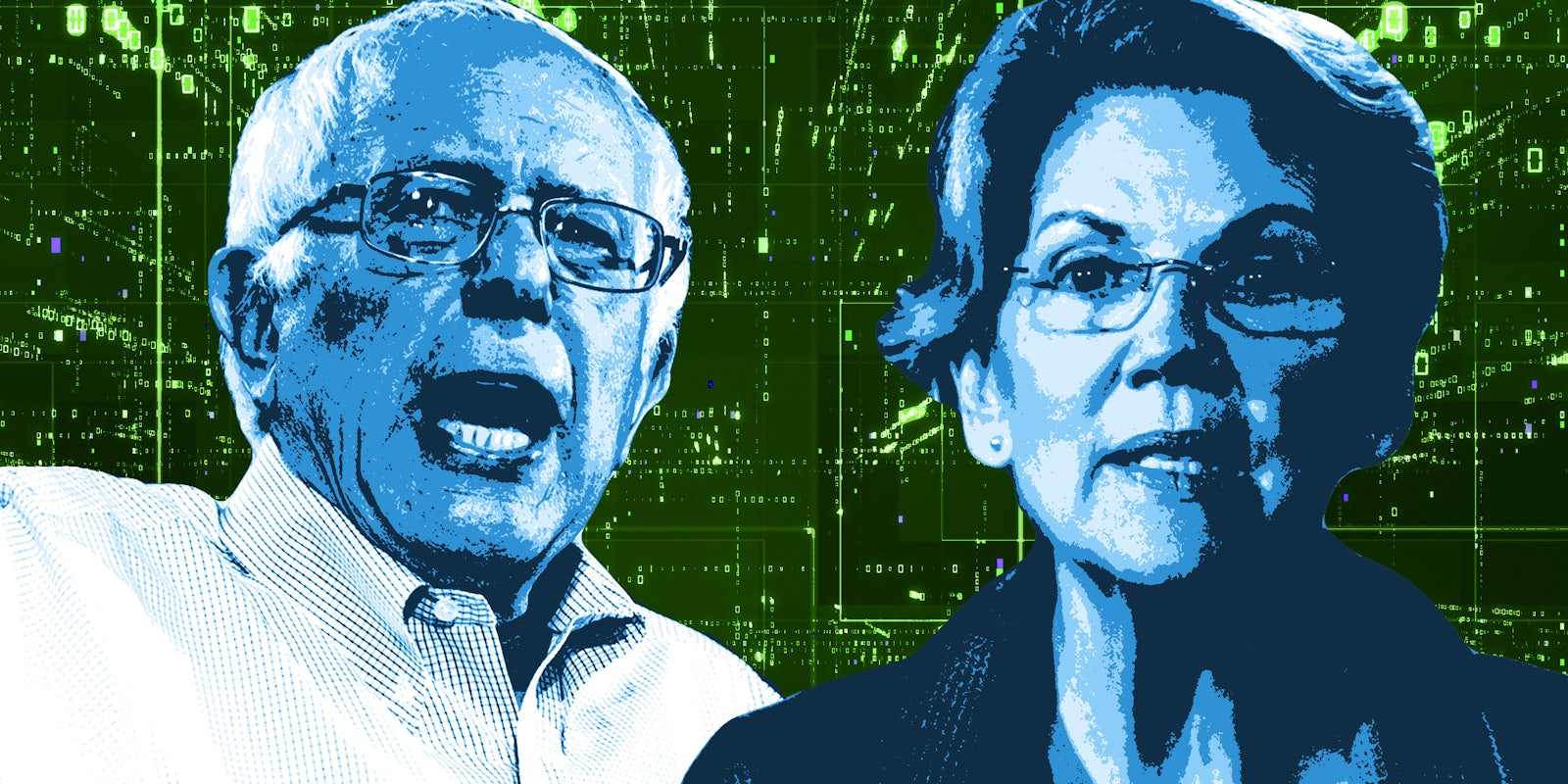Net neutrality has been an important issue for a number of voters in recent elections—and it looks like Democrats seeking their party’s 2020 nomination have plans for the issue should they be elected.
Since the Federal Communications Commission (FCC) repeal of the rules in 2017, there have been ongoing efforts in Congress and the courts to overturn the decision. Immediately following the repeal, lawmakers tried to use the Congressional Review Act (CRA) to reverse the FCC’s repeal and this year the House of Representatives passed the Save the Internet Act to try and codify the same rules that were repealed.
A decision on the challenge in federal court involving the repeal is expected to come soon, and the Save the Internet Act has languished in the Senate.
Despite these efforts, the repeal remains in effect—and if nothing changes between now and the 2020 election, the next president could be in a position to reverse the FCC’s repeal either by shepherding legislation through Congress or using their power to appoint commissioners to the agency that would undo it.
If the FCC is the route a potential new president would take to reverse the repeal, it wouldn’t happen immediately. A president has the power to nominate FCC commissioners that would need to be confirmed by the Senate. They would also be able to pick a commissioner to serve as the agency’s chairman. Only three of the five commissioners can be from the same political party, and they all serve five-year terms.
The terms of the current FCC commissioners end in 2020, 2021, 2022, 2023, and 2024. However, in recent switches of presidential party control, FCC chairmen of the opposite party have resigned when a new party takes the presidency. William Kennard, a Democrat, offered his resignation in January 2001 before George W. Bush took office, Kevin Martin, a Republican, resigned in January 2009 before Barack Obama took office, and Tom Wheeler, a Democrat, resigned in January 2017 before Donald Trump took office.
It would appear likely that Ajit Pai, the current FCC chairman, would do the same, creating an opening for a potential Democratic 2020 winner to fill shortly after inauguration. That would put a Democratic majority in power at the FCC.
Some other candidates have offered different ideas for how to save net neutrality.
Mayor Pete Buttigieg said he believes that legislation would “ultimately be necessary” to restore the rules “given the FCC’s volatility on this issue.”
Meanwhile, Sen. Amy Klobuchar (D-Minn.) has proposed using federal contracting requirements to “encourage” ISPs to adhere to net neutrality.
Nearly all of the 2020 Democrats have been vocal about their support for net neutrality in the past—and several candidates have even brought the issue up on the campaign trail—but the Daily Dot reached out to the Democrats vying for the party’s nomination in 2020 and asked them whether they would nominate commissioners to the FCC that would overturn the Restoring Internet Freedom Order, the order that repealed net neutrality in late 2017.
Here is what they said. This story will be updated as more campaigns respond.
Net Neutrality: 2020 Democratic Candidates
Bernie Sanders 2020 Net Neutrality
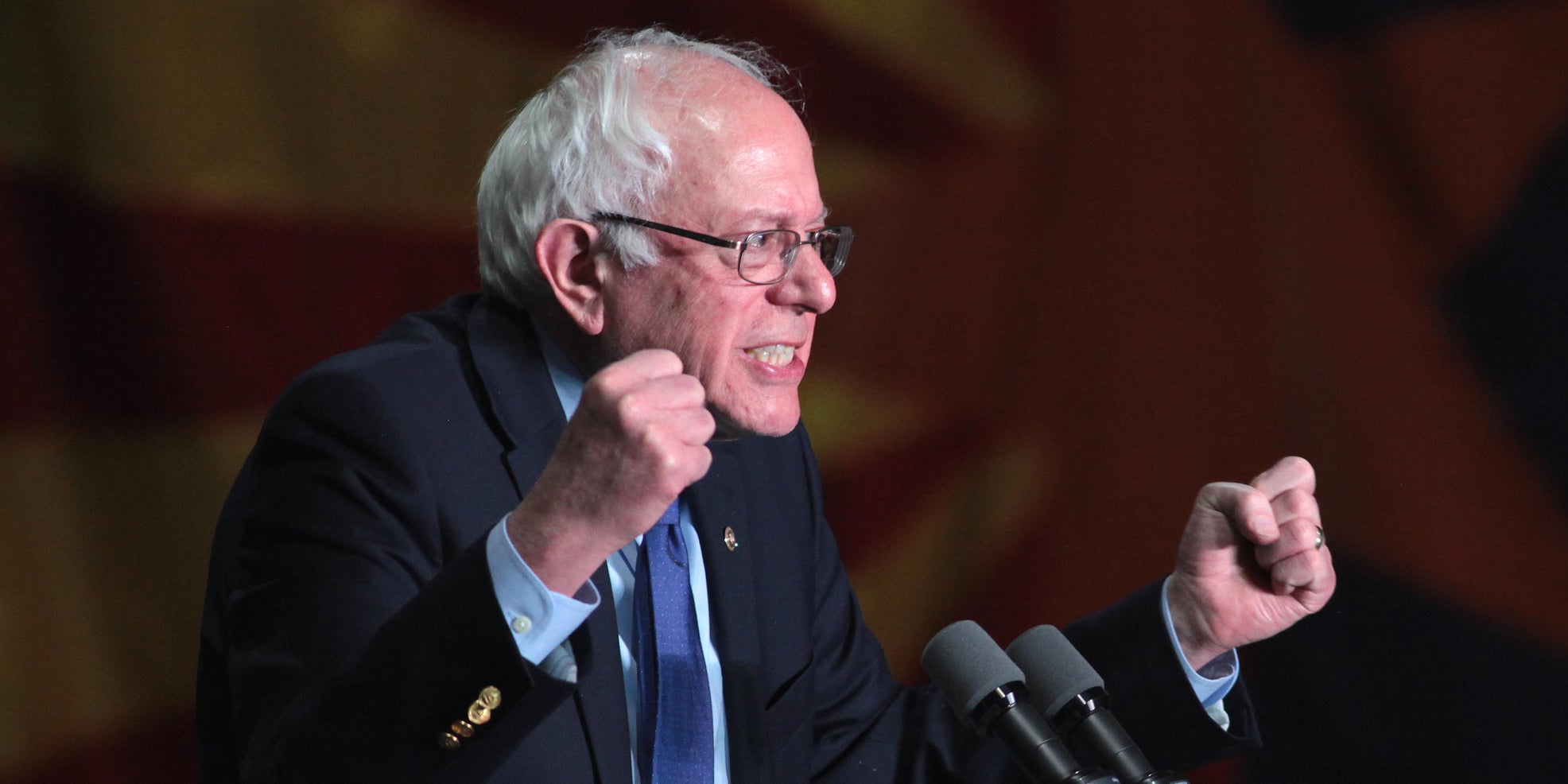
Sen. Bernie Sanders (I-Vt.) has long been a proponent of net neutrality and told the Daily Dot that should he be elected, he would appoint FCC commissioners that would undo the repeal.
“Bernie Sanders believes net neutrality is fundamental to communication, commerce, and competition,” his campaign told the Daily Dot recently. “When Bernie Sanders is President, he will appoint FCC commissioners who will reinstate net neutrality protections and make sure that giant corporations treat all content and traffic equally.”
Ahead of the rules initially being enacted in 2015, Sanders gave a speech in support of them on the Senate floor, where he said he agreed with the idea that internet service providers should be treated like a utility, hinting at his support of them being classified under Title II of the Communications Act—which the 2015 Open Internet Order did.
In that same speech, Sanders called the idea of fast lanes and slow lanes on the internet “grotesquely unfair.”
Sanders was one of the numerous senators to sponsor the Save the Internet Act in the Senate earlier this year.
Elizabeth Warren 2020 Net Neutrality
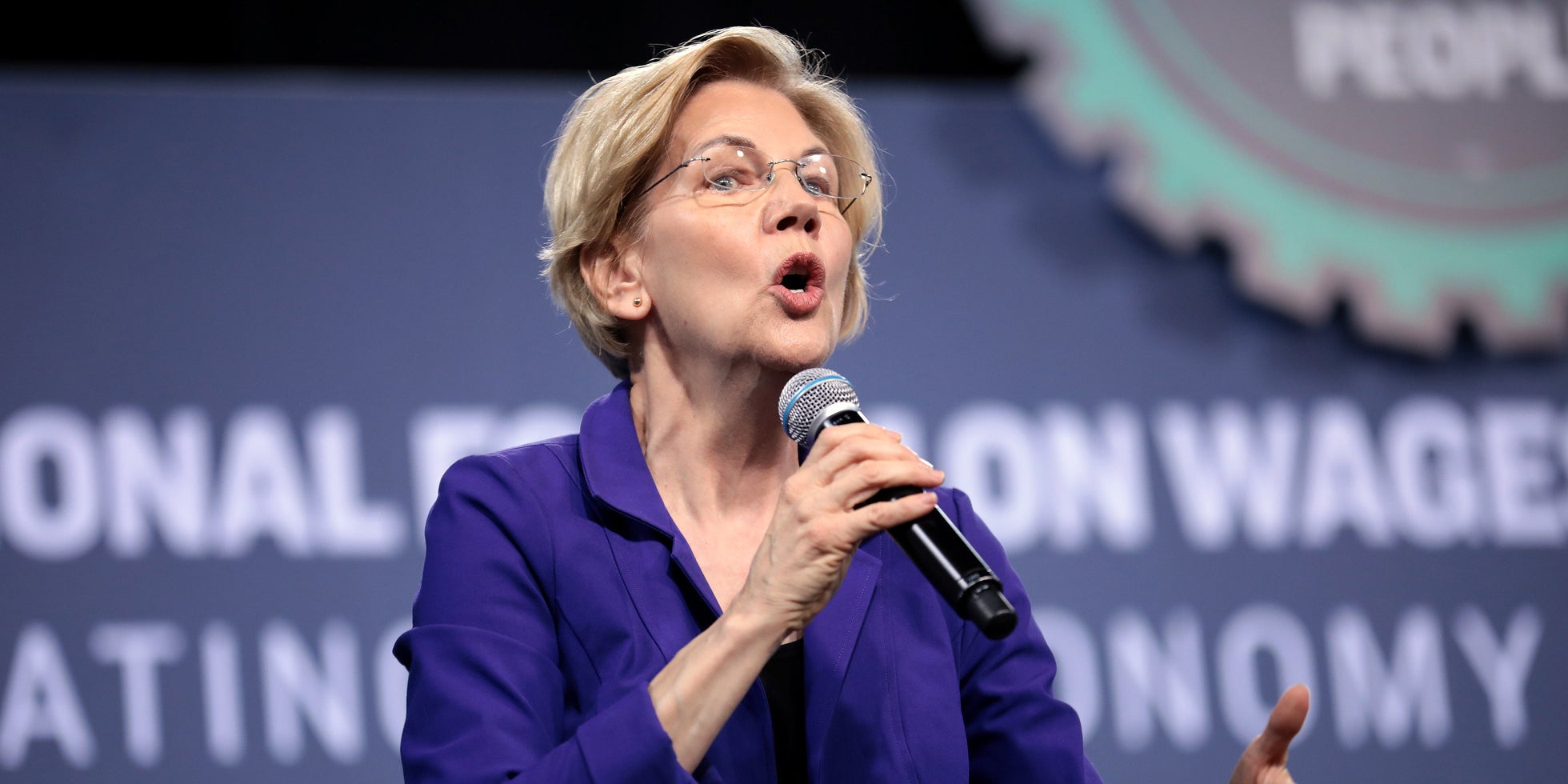
Warren announced her pledge to appoint pro-net neutrality FCC commissioners in a blog post on Medium last week. Within her plan, she specifically mentioned that she wanted ISPs regulated as “common carriers,” or under Title II of the Communications Act, a point of contention among lawmakers who have tried to legislate net neutrality in Congress.
“I will appoint FCC Commissioners who will restore net neutrality, regulating internet service providers as ‘common carriers’ and maintaining open access to the Internet,” Warren wrote in her blog post.
Like Sanders, Warren has also been a proponent for net neutrality for years. Before the FCC’s vote to adopt the 2015 Open Internet Order, she called it “welcome news for all of us who have stood up for a free & open internet.”
Warren also gave a speech on the Senate floor in support of net neutrality. Last year, ahead of the Senate’s vote on the CRA, Warren urged her fellow lawmakers to support it. The Senate passed the CRA last year before it died in the then-Republican controlled House.
Warren was one of nearly all Senate Democrats to sponsor the Save the Internet Act earlier this year.
Andrew Yang 2020 Net Neutrality
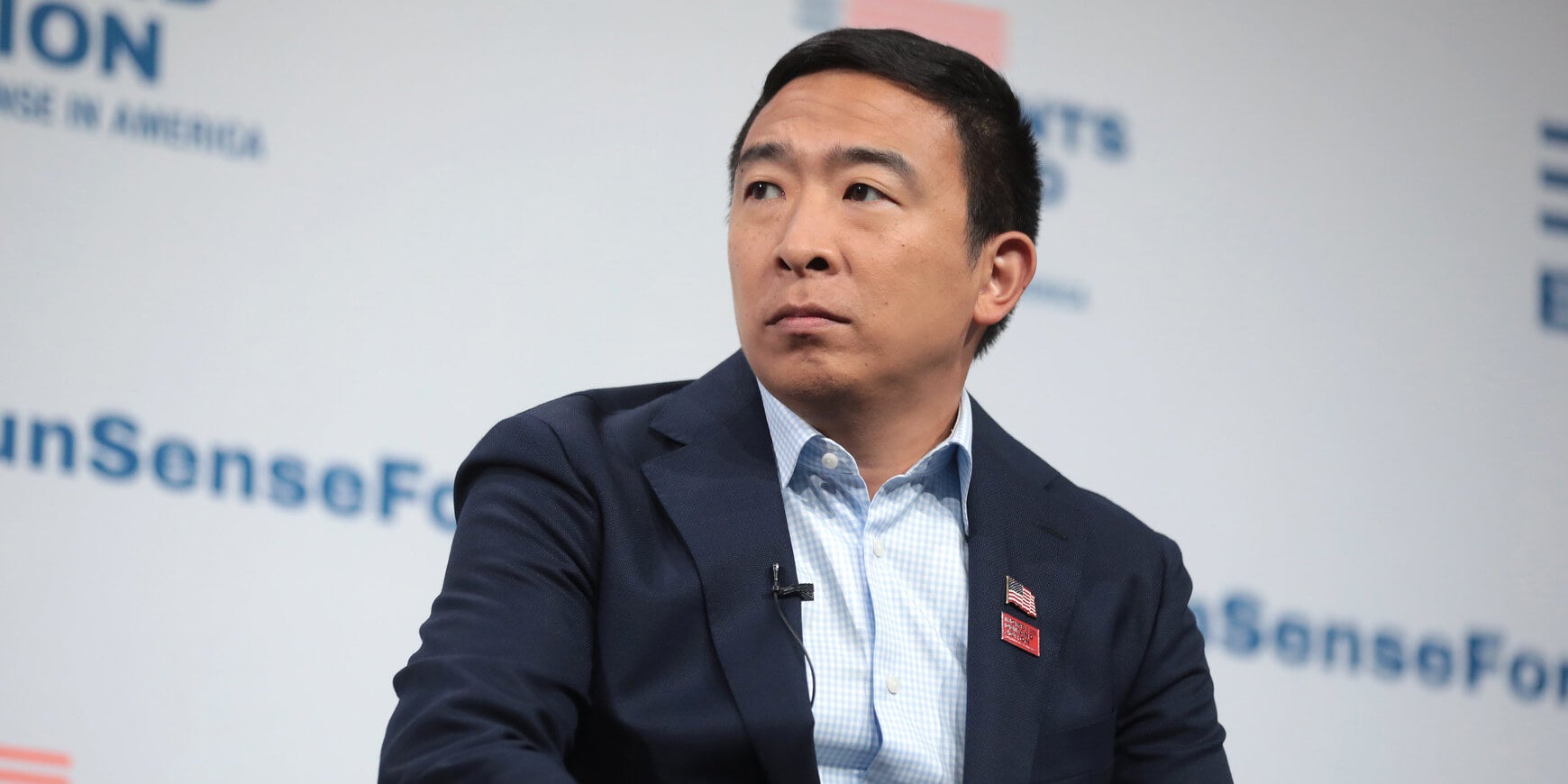
Andrew Yang, the entrepreneur and 2020 hopeful, pledged to nominate pro-net neutrality FCC commissioners on his website.
Yang specifically mentions that ISPs should be classified under Title II of the Communications Act as something he’d want commissioners to support.
“Whoever has the most money or clout is a terrible way to decide who gets the most bandwidth on the Internet. Net Neutrality has served us well and should continue to be the law. I will make it so as President,” Yang’s website reads.
In addition, Yang said he wants to increase competition among internet providers because the current situation has driven “prices up to monopoly levels.”
On the day the FCC repealed the rules in 2017, Yang also hoped that Congress would pass a net neutrality law.
“Who has the most money or clout is a bad way to determine who gets privileged on the Internet. Hopefully Congress will do the right thing and pass net neutrality into law,” Yang tweeted.
Tom Steyer 2020 Net Neutrality
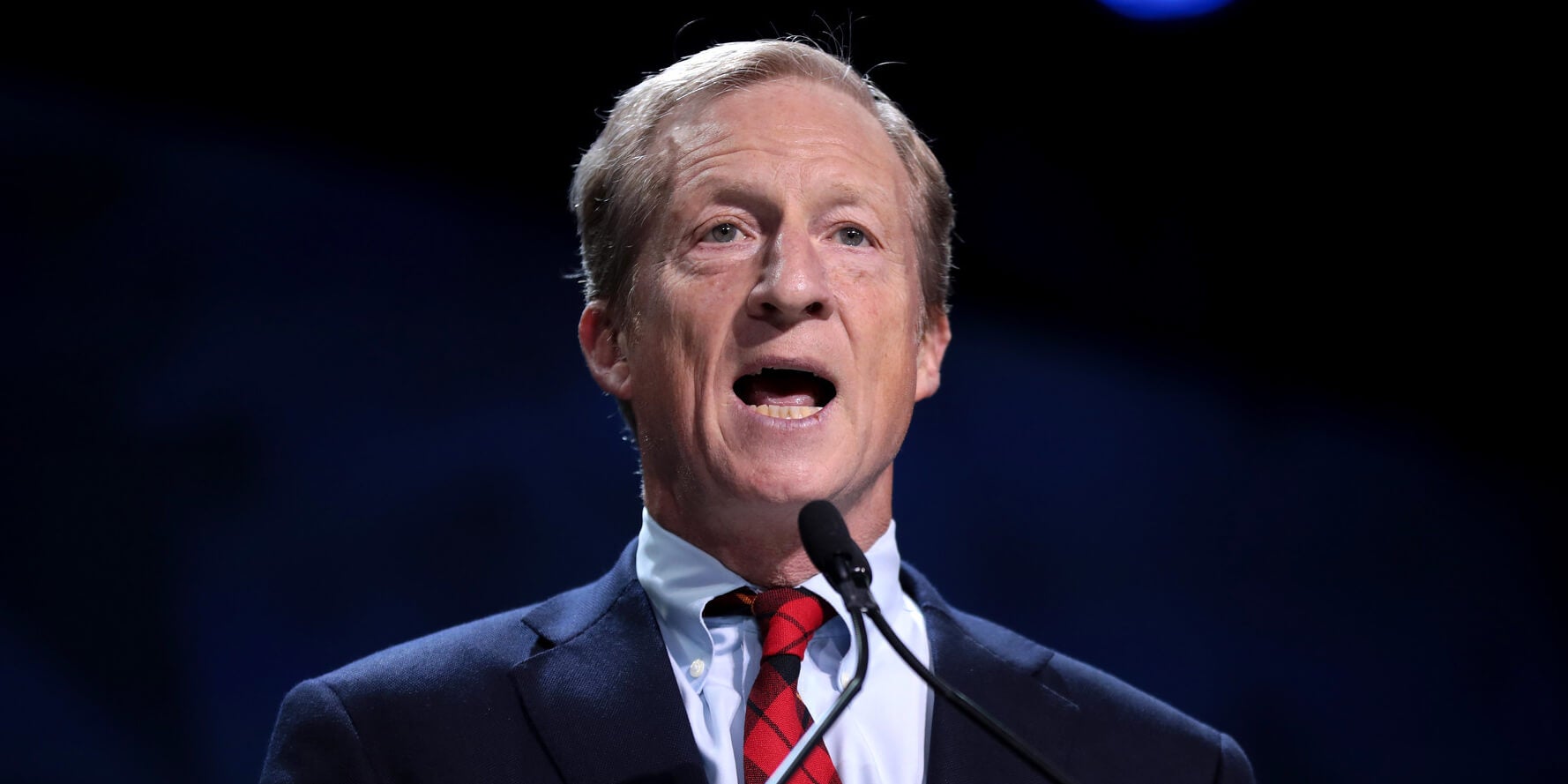
Tom Steyer, the billionaire late entry into the 2020 foray, announced in early November that he would appoint commissioners to the FCC who support net neutrality.
Steyer made the commitment as part of his “Partnerships with Rural Communities” plan. Within it, the billionaire says he hopes to allow local governments, nonprofits, and cooperatives to build their own broadband networks, and invest $135 billion in Rural Utilities Service Grants for broadband and fiber investments, among other things.
Steyer added he hopes to “appoint FCC commissioners who support net neutrality.”
Past candidates on net neutrality
John Hickenlooper 2020 Net Neutrality
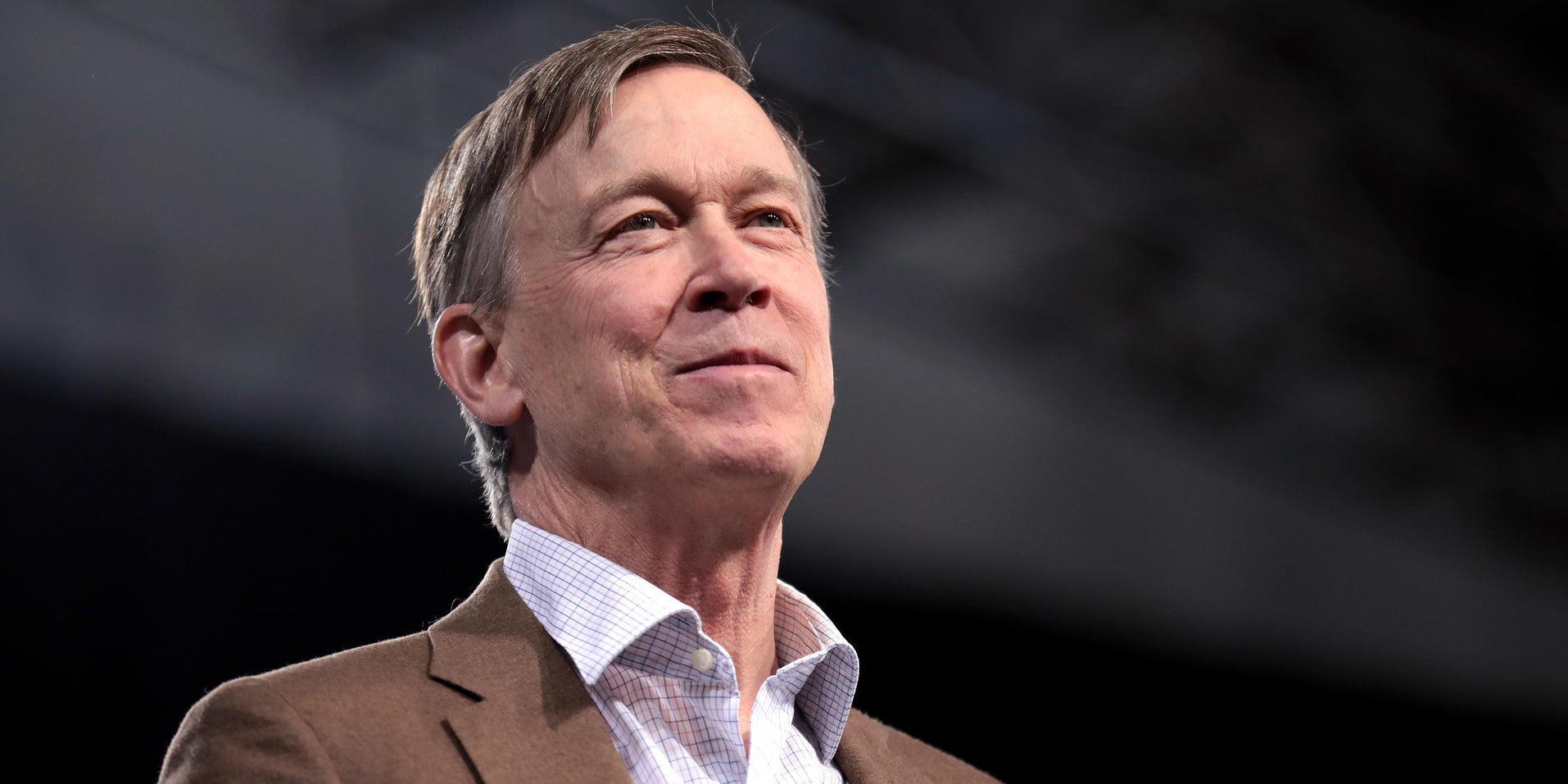
Shortly after the FCC’s repeal of the rules in 2017, former Colorado Governor John Hickenlooper (D) spoke out against the decision in a series of tweets.
“Eliminating #NetNeutrality needlessly disenfranchises Coloradans & our small businesses. Fair & equal access to the internet levels the playing field for everyone. The FCC must vote to keep the internet accessible to all!,” he wrote in December 2017, adding two days later: “Innovation and an open internet have been always been synonymous; today, the FCC voted against innovation and against fair access to information and content #NetNeutrality.”
The former governor’s campaign told the Daily Dot if elected president he’d appoint FCC commissioners who would reverse the FCC’s decision.
“The Restoring Internet Freedom Order is a step back in terms of net neutrality,” a campaign spokesperson told the Daily Dot. “The Governor supports net neutrality and as President would reverse the Trump Administration’s rules.”
Hickenlooper dropped out of the presidential race on August 15.
Seth Moulton 2020 Net Neutrality
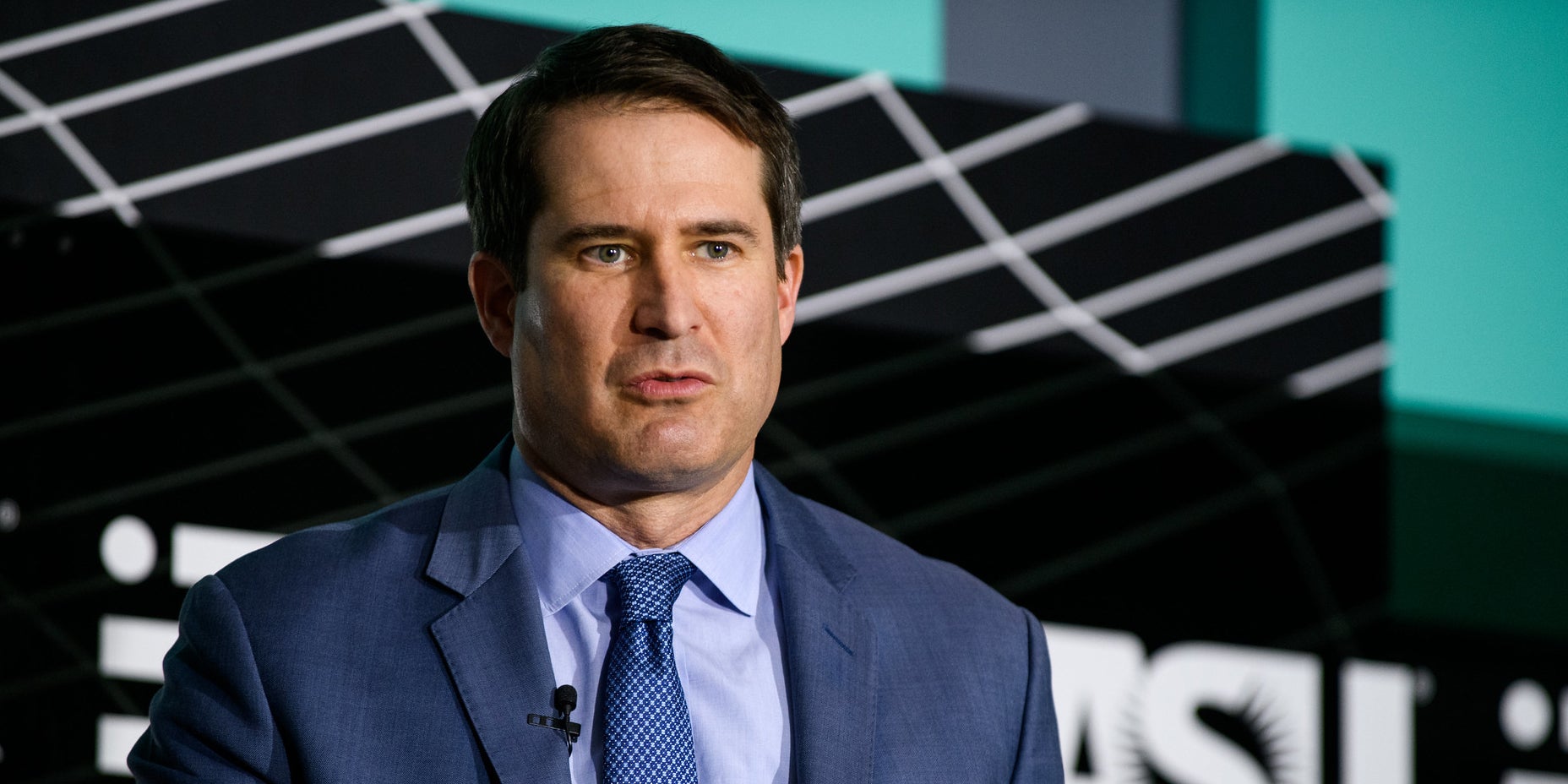
Following the FCC’s repeal in 2017, Rep. Moulton (D-Mass.) blasted the decision, saying it “sends us down a dangerous path, where a few large corporations can control access to something Americans and small business owners rely on every single day.”
During the CRA effort last year, Moulton urged his colleagues in both the Senate and the House to vote in favor of it. Ultimately, the CRA passed in the Senate but failed to get the needed number of signatures required to force a vote in the House.
Moulton voted to pass the Save the Internet Act in the House earlier this year.
When asked by the Daily Dot whether Moulton would appoint FCC commissioners who promised to undo the Restoring Internet Freedom Order, the Massachusetts representative’s campaign told the Daily Dot “he would.”
Moulton dropped out of the presidential race on August 23.
Kirsten Gillibrand 2020 Net Neutrality
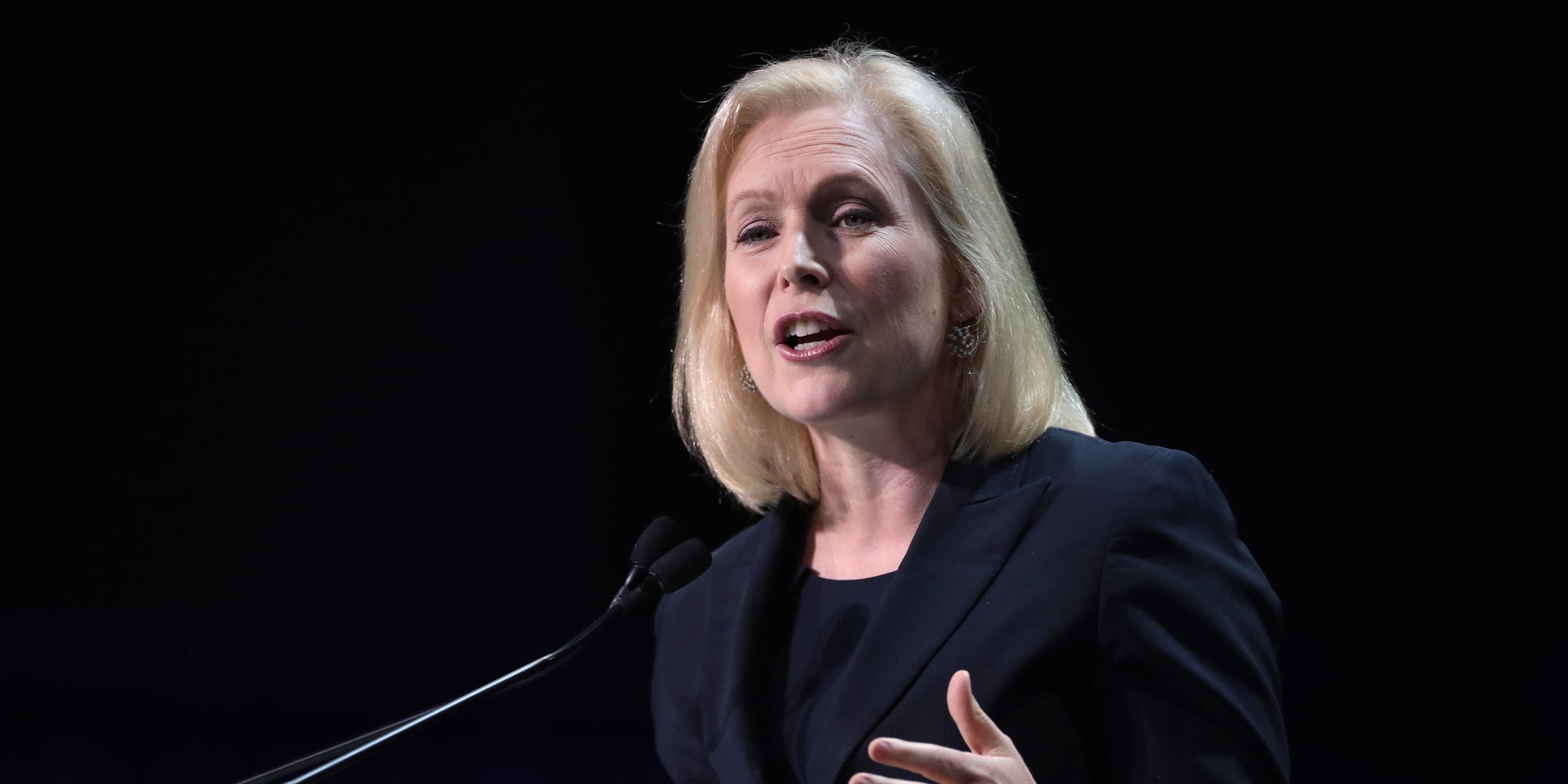
Sen. Kirsten Gillibrand (D-N.Y.) has backed net neutrality from as early as 2014, pushing for the adoption of the rules ahead of the 2015 Open Internet Order.
In 2017, following President Donald Trump’s election, Gillibrand warned against FCC Chairman Ajit Pai’s push to repeal the rules. She also wrote an opinion piece with FCC Commissioner Jessica Rosenworcel for Refinery29 about how repealing net neutrality would have a negative impact on women. More recently, Gillibrand joined (almost) the rest of her party this year in cosponsoring the Save the Internet Act in the Senate.
Like Warren, Gillibrand said she supports classifying internet service providers as utilities.
“As president, Senator Gillibrand will appoint people that believe in the value of a free and open internet, including regulating ISPs as public utilities,” a campaign spokesperson told the Daily Dot.
Gillibrand dropped out of the presidential race on August 28.
READ MORE:
- Why is Kyrsten Sinema bucking her party on net neutrality?
- 47 House Democrats sign criticized net neutrality working group letter
- Why a law from 1934 is the biggest issue surrounding net neutrality
Jay Inslee 2020 Net Neutrality
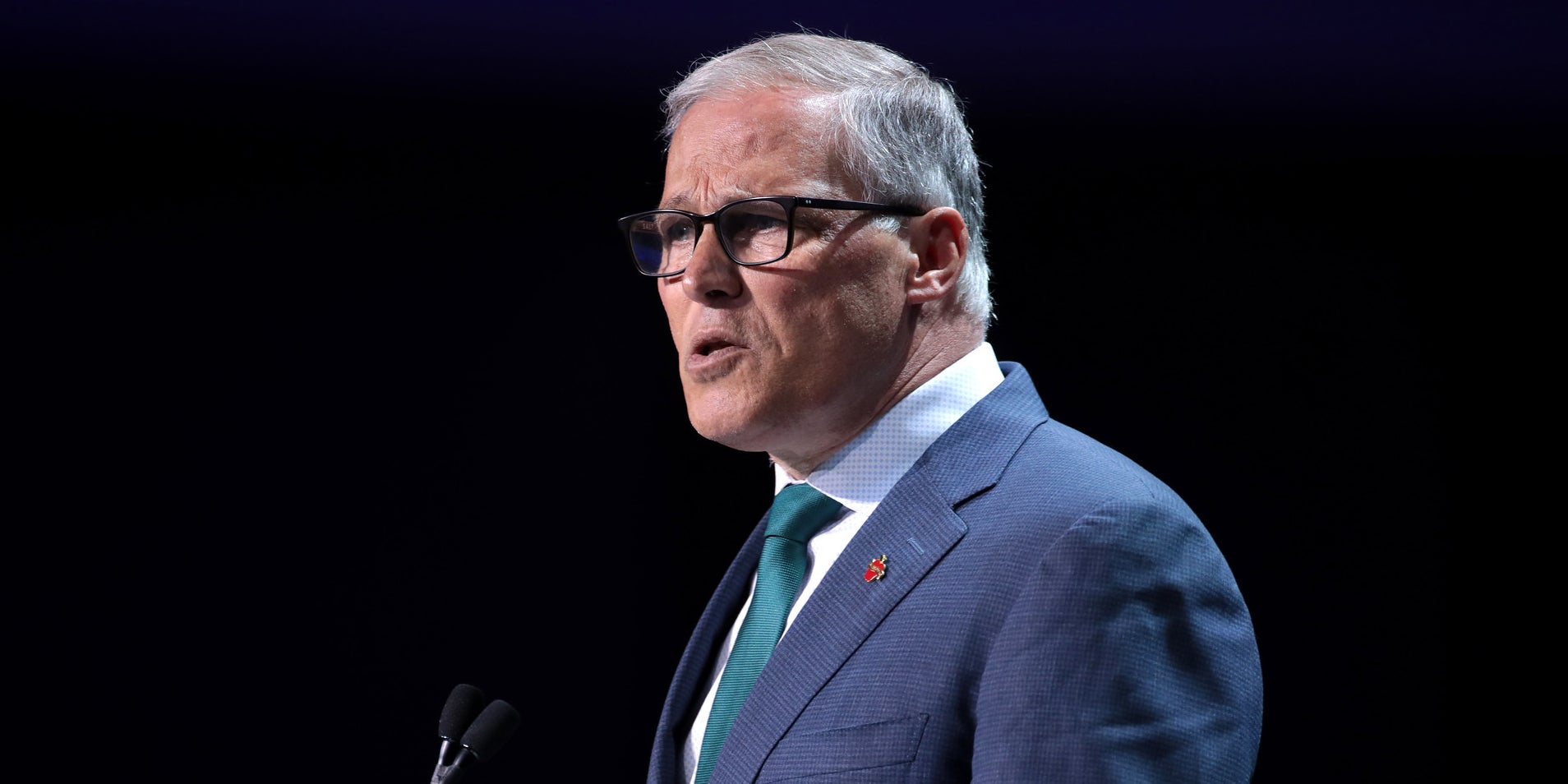
In March of last year, Gov. Jay Inslee (D-Wash.) signed the first state-level net neutrality law in the wake of the FCC’s 2017 repeal.
The bill barred ISPs working in the state from creating fast lanes or slow lanes. Since then, a number of states have also passed (or are in the process of creating) similar bills.
The governor’s 2020 campaign told the Daily Dot that net neutrality would be a priority for him if elected.
“Governor Inslee supports a free and fair internet, and as governor has taken first-in-the-nation steps to protect internet for Washingtonians, including passing the first state-level net neutrality bill,” a campaign spokesperson told the Daily Dot. “As president, Inslee would appoint FCC commissioners supportive of net neutrality. He also supports codifying net neutrality into federal law to ensure Americans always have access to fair internet.”
Inslee dropped out of the presidential race on August 21.
Marianne Williamson 2020 Net Neutrality
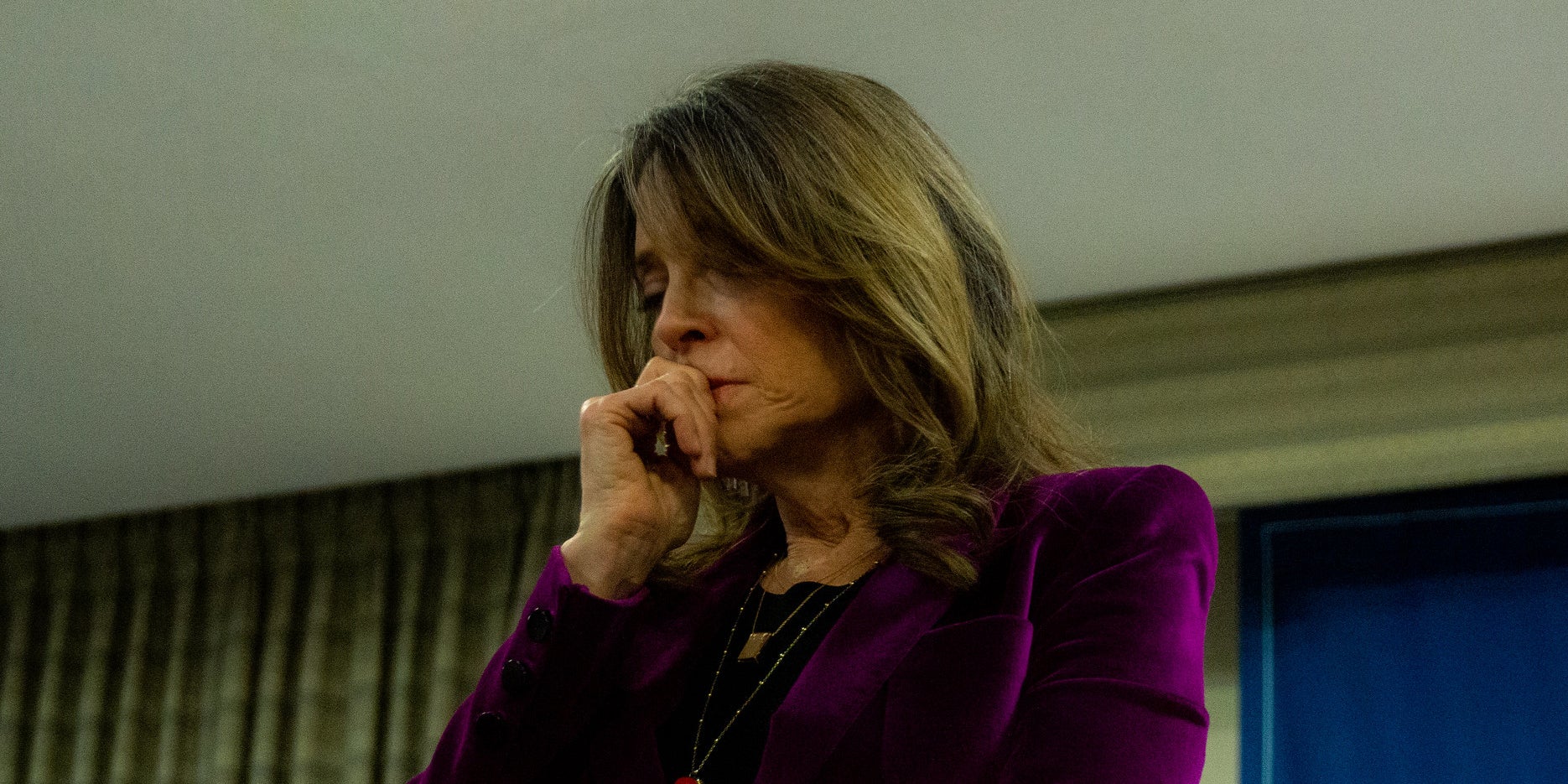
Like the others on this list, Marianne Williamson, the author and spiritual guru seeking the Democratic presidential nod, said that she would appoint FCC commissioners who would reverse the agency’s repeal of net neutrality rules.
“Ms. Williamson would appoint FCC commissioners who would undo the Restoring Internet Freedom Order and revert back to the 2015 Open Internet Order,” Williamson’s campaign told the Daily Dot. “We need to return to treating all internet traffic as equal.”
Kamala Harris 2020 Net Neutrality
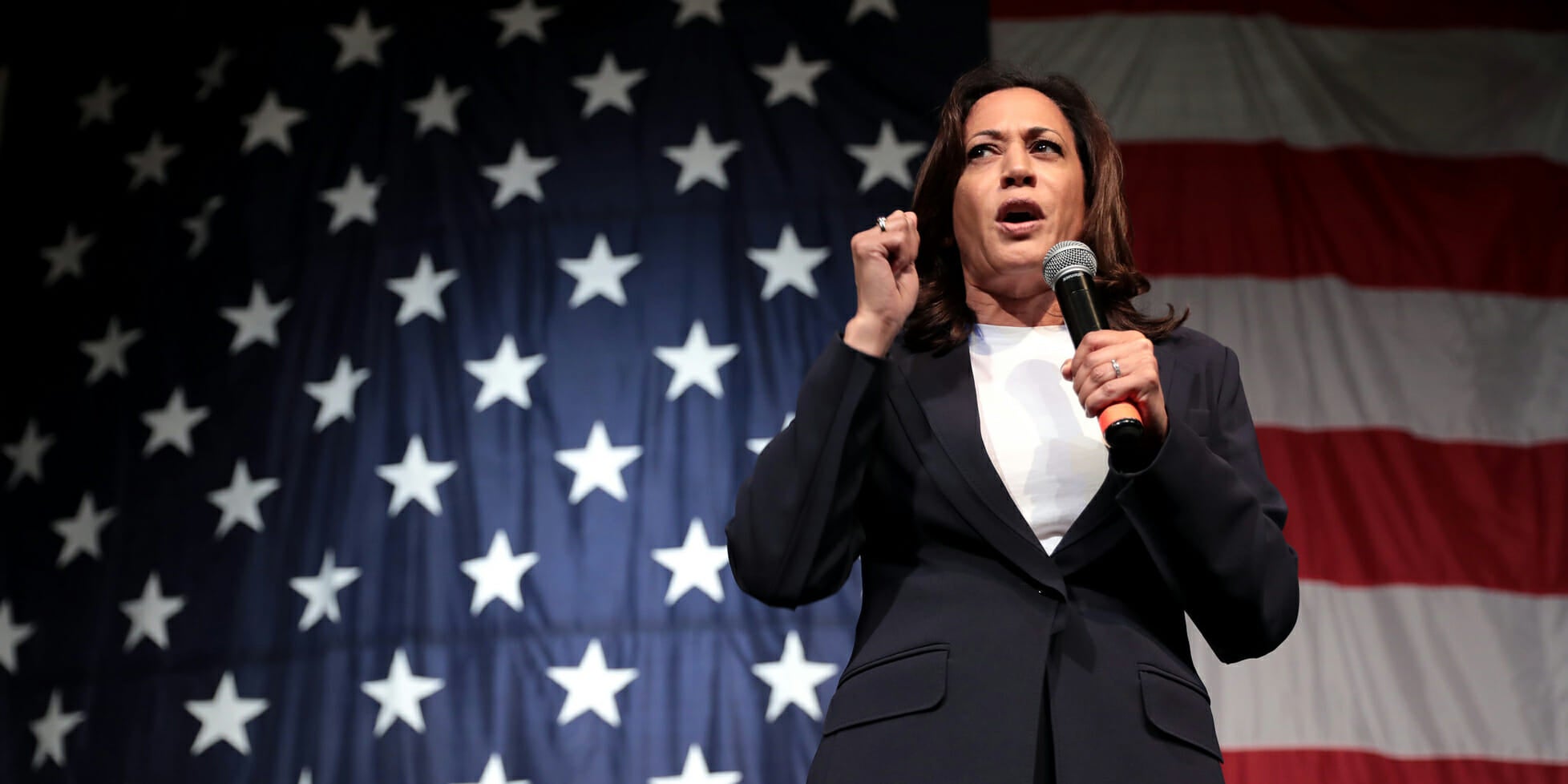
Sen. Kamala Harris (D-Calif.) told the Daily Dot in late August that she would appoint a pro-net neutrality FCC chairperson should she be elected president in 2020.
“Kamala Harris has been a strong and vocal supporter of net neutrality. As a California Senator she is acutely aware of how a free and open internet is a platform for education, entrepreneurship, and creativity,” the senator’s campaign said. “She has has been an original co-sponsor of multiple measures in the Senate that would reverse the Trump FCC’s disastrous decision to roll back net neutrality. As president, she will appoint an FCC Chair who is committed to bringing back net neutrality.”
Her stance on the issue is not surprising given her history.
Harris voiced her opposition to the FCC’s repeal by publishing her comment to the FCC on Medium ahead of the agency’s vote. Within it, she said the decision would “dismantle strong and enforceable net neutrality rules,” adding that it posed a “grave threat to the Internet’s success, and to California’s future.”
Harris has also been vocal in support of the Save the Internet Act on the campaign trail, and—like Klobuchar—pressed Kavanaugh on his net neutrality dissent during his confirmation hearings.
John Delaney 2020 Net Neutrality
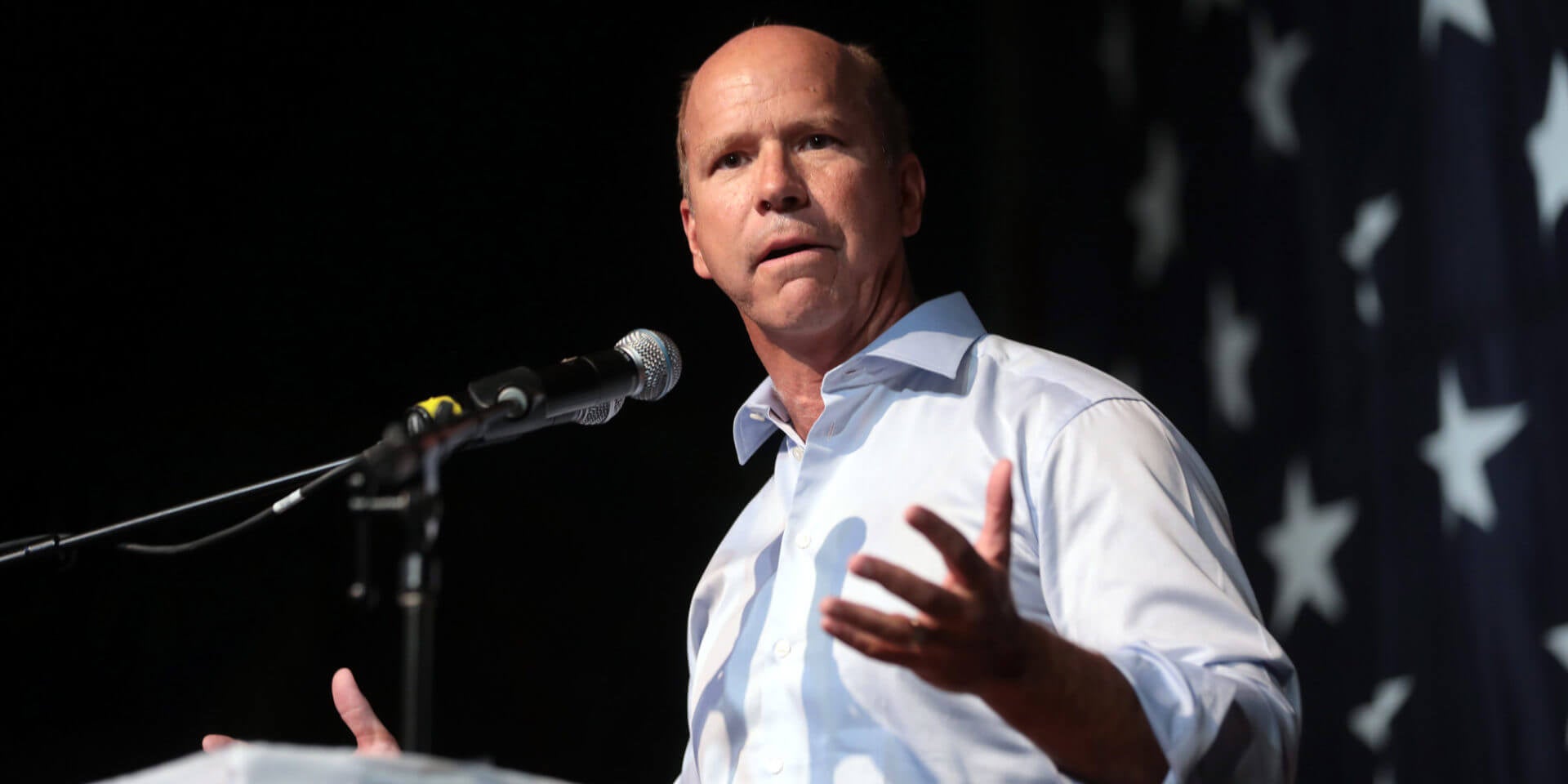
John Delaney, a former congressman running for the Democratic nomination, said if he were elected president he would appoint FCC commissioners who would be “committed to maintaining a fair and open internet.”
Delaney made the remarks while speaking with TechCrunch, adding that he supported the Save Net Neutrality Act, a bill he co-sponsored as a member of the House of Representatives in 2017.
“I support the Save Net Neutrality Act to restore net neutrality, and I will appoint FCC commissioners who are committed to maintaining a fair and open internet,” the former congressman told the news outlet in mid-September.
The bill would have prevented the FCC from using a public notice for their plan to repeal the rules. Several other 2020 rivals including former Rep. Beto O’Rourke and Rep. Tim Ryan (D-Ohio) were also co-sponsors of the bill.
Earlier this year Delaney told the Daily Dot he supported ISPs being regulated under Title II of the Communications Act, adding that reinstating net neutrality would be a “priority of my administration.”
READ MORE:
- Hasan Minhaj explains why your internet sucks in ‘Patriot Act’ episode, puts it on DVD
- Meet the home brewer turning beer into a case for net neutrality
- Democrats try to force vote on Save the Internet Act net neutrality bill
Got five minutes? We’d love to hear from you. Help shape our journalism and be entered to win an Amazon gift card by filling out our 2019 reader survey.

